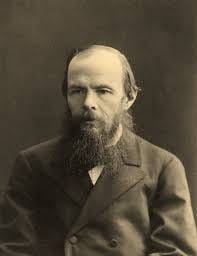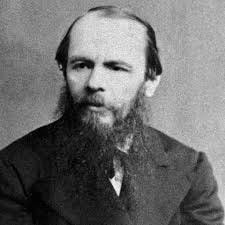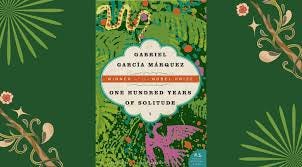Listening to my favourite podcast, I heard a stat that made me hit pause and sit up in my seat. In Brazil, there are no English songs on the top 100 charts. None. In the same podcast episode, I also learned about a decision by Norwegian musicians at a recent festival to perform exclusively in Norwegian. Norway only has about five million inhabitants so that is a major act of defiance of popular culture and acceptance of their own. Meanwhile, on the U.S. Billboard top 100 charts, Spanish musicians like Karol G have songs in the top 40 and Manu Chao’s Me Gustas Tu recently took over social media 23 years after its release.
This creative and collective expression of localism in music got me thinking: Could this type of rejection of the English language seep into literature? Is it possible for a non-English book to rise to bestseller status without it being translated to English?
Scrolling through YouTube, I was pleasantly surprised to come across a literary series hosted by none other than…CHANEL? Yes, that CHANEL. The iconic French fashion brand with over a century of history.
The video series is called “In The Library With” and features different entertainers describing several books they have read or are currently reading and how it affected their lives. What I appreciated about this series was that the majority of interviews, particularly from the earlier videos, were conducted completely in French. As I watched these entertainers speak intelligently about the novels that impacted their lives, I thought about the weight of this global brand not catering to the global language. And yes, there were subtitles, but that doesn’t take away from the show of authenticity expressed by conducting those interviews in French.
My attention then turned to the titles these entertainers were reading. Some were French books written by French authors, but many were French translations of English books. This observation again made me wonder about the lack of capaciousness we give to books not written in or translated to English. I asked myself if a non-English book would ever capture the attention of popular culture in its original language. Or is the world so enamoured by English that it is impossible for a book to become culturally relevant unless it’s translated?
I’m a native English speaker and all the books I’ve read have been written or translated into English. I’m currently reading several of Dostoevsky’s short stories and this question of language created some conflict in my mind. Because if Dostoevsky had not been translated into English, Crime and Punishment, The Idiot, The Brothers Karamazov, and his other classics would have been completely inaccessible to me.
As devastating as that loss of access would be, I wonder if we’re losing something greater by not acknowledging the influence of a book in its native tongue. I’ve obviously never read the Russian versions of Dostoevsky’s books, but I can only imagine the connection native Russian speakers feel when their eyes scan those pages. Why isn’t that linguistic connection enough?
I mean, there are other popular languages being spoken. 1.1 billion people speak Mandarin, over 600+ million speak Hindi, Over 500 million and 300 million speak Spanish and French respectively, and another 270+ million speak Arabic. Either of these languages encompass more than enough speakers to make a novel significant and even a bestseller.
Why doesn’t it happen?
And when I say why doesn’t it happen, I mean why doesn’t it happen in popular culture? Authors local to their countries are and can become popular writing in their mother tongue. Gertraud Klemm, a German author, and Ildefonso Falcones, a Spanish author, are just a couple that come to mind. But I can’t find an example where a book has ascended to the realm of a Colleen Hoover novel without being written or translated into English.
What’s even more interesting is that this phenomenon is already happening in other creative fields. I already mentioned music, but film is enjoying a similar trajectory. Captioned films are no longer relegated to the obscure. Instead, movies like All Quiet on the Western Front (German) and Roma (Mexican) are just the tip of what has been an unprecedented welcoming of movies not translated into English.
But even the thought process of that last line makes me cringe. I can admit that I am placing a lens on this piece that in itself could be viewed as problematic; that being equating popularity to how well a book performs in the English language market. Yes, with over 1.4 billion speakers, English is the most popular language in the world. But why does that automatically presume it to be the default language for global literary expression? More importantly, why am I discrediting the significance of a book within its country and language of origin?
There are cultural aspects at play here, of course. English is the language taught to so many cultures across the world. Children in India, Singapore, several countries throughout Africa, and many, many more are made to study English. There are even parts of India where young people are discouraged from speaking their native tongues in school and in public conversation in exchange for English.
Then there’s the disturbing history of the English language being forced onto cultures against their will. I’m from Canada where we have a horrid history of residential schools, which oppressed, brutalized and even murdered Indigenous peoples who attended these institutions. These institutions banned any child from speaking their Indigenous language and stripped them of any other semblance of their culture. And I’m not just talking about the 18th and 19th century, I’m talking about the mid to late 20th century.
Something else to consider: English was (and still is) used as a form of denoting intelligence. Speaking “proper” English is often a badge associated with manners, status and other forms of colonial signifiers. It’s impossible to conduct any cultural examination of the English language and its prevalence in literature without acknowledging these factors.
As we return to how those factors impact literature, I think of an author like Elif Shafak. Her native language is Turkish and that was the language of her first four novels. Shafak is also fluent in Spanish, but decided to write her proceeding nine novels in English. In a recent interview with The Guardian, Shafak says of her decision to not write in Turkish: “There came a moment in my life when I felt so suffocated…But that was a very scary thing to do, because you’re nobody. You have to start from scratch again.”
Shafak escaped Turkey on a self-imposed exile after being prosecuted by the state for the content in some of her English books. Later, however, she was criticized by Turkish readers for not including any of her native language in any of her books. In her own words, Shafak said, “It caused a lot of reaction and bitter criticism in Turkey when people heard I had started writing fiction in English — people took it as a cultural betrayal, because language is such a politicized issue in Turkey. Even the words you chose to use can have political implications. In such a heavily politicized environment, the sheer fact that I had chosen English to write my fiction was a blasphemy in the eyes of some people.”
While there were clearly cultural and political factors that impacted Shafak’s decision to switch to English, accessibility to her work had to be on her mind. The Bastard Of Istanbul, Shafak’s second English novel, was a critical and commercial success. By all accounts, Shafak was a brilliant writer before switching to English, but would she have been celebrated this widely if she didn’t?
As someone who studies popular culture, it’s interesting to see what’s happening. Although English remains the dominant linguistic force, I sense things are shifting. I mention some of my observations in this piece (music, film), but part of my theory is based on instinct. I’m sensing a different type of local, cultural pride and language is a big part of that.
It hasn’t stretched into literature in the same way as other creative industries - not yet. But I wouldn’t be surprised if a non-English bestseller bursts into the mainstream and occupies conversations like Maas or Rooney or Hoover do today.
But what do you think? Is publishing ready for this type of inclusion?







I have so many thoughts on this subject as it’s very close to my heart. I am a native Hungarian speaker who grew up in Israel so learning languages is my passion. I read in 6 languages. Gabriel Garcia Marquez was the first author I read in Hebrew translation, then in Hungarian and English. I have recently accomplished a dream and finally read him in the original Spanish!! It was hard work but totally worth it. I read in Italian and French regularly. I write predominantly in English, but can’t help sneaking in phrases in other languages (like in this week’s post!). I am very consciously trying to decolonize literature from its English dominance. I love the English language with great passion, but there is so much good literature out there that is not English. Knausgaard’s books were a remarkable success! When I read him I kept wondering how this would read in the original Norwegian. If there is indeed a shift, I welcome it!! We need to open our minds and hearts to other cultures and languages. Elif Shafak is also one of my favourite writers. I wouldn’t be able to read her in Turkish, but I will make the effort to read her in Spanish or French. Reading literature in other languages is no doubt harder for me than reading in English, but it is the BEST way to improve your language skills as well as practicing getting outside your comfort zone! So, I highly recommend it :) (ps. Your post reminded me that I really needed to get on with writing that Dante inspired play in Italian! Thank you! )
Dostoyevsky’s portrait stopped me in my tracks (I’m Russian), so I started reading your essay — so much food for thought! I love reading Checkov (another great Russian classic) translated into English, don’t know what it says about me 🫢